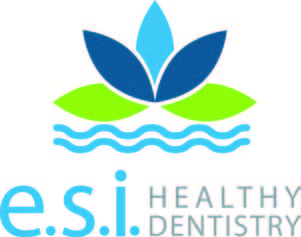In anthropology we move back into the past and study skulls of ancient man in order to learn more about ourselves as a species. When you look at cavemen, they ended up having 32 teeth, perfectly straight, never having braces, never having crowding, never having sleep apnea or hidden teeth that are blocked out. Our last molars to come in the mouth are referred to as wisdom teeth because they usually erupt when we are late teenagers.
Our diet has changed in the last 10,000 years. We don’t exactly live on berries, nuts, fish, and meat. After eating more processed foods our jaws have gotten smaller, but our teeth remained the same. This has resulted in our back molars not having enough room to come in the mouth properly. Many of us have impacted wisdom teeth. They are under the gums and bone and oftentimes are angled. This can lead to cysts developing, infections, swelling, pain, bone loss and decay that affect not only the wisdom tooth but also the tooth in front of it. On average, 8 out of 10 patients have issues with their wisdom teeth and benefit from having them removed. For the rest, if they can keep them clean, they can maintain them like all other teeth. In other words, for most patients there simply is not enough room in the jaws to accommodate these teeth. It’s like trying to fit 32 people in a small room that would fit 28 people comfortably. Do you expand the room, or do you remove 4 people?
I am sure that as you are reading this either you or someone you love needed to have their wisdom teeth removed. As stated earlier, not everyone needs to have this done. In the cases where it is a medical necessity, it is better to have all four removed at an early age. Studies show that the ideal age window is between 16 and 23 years of age. Our healing capacity is optimal at that age and the bone is not as dense. Furthermore, the roots of these teeth are not completely developed, making them easier to be removed. We want all the good things without the bad. Anytime teeth are taken out there are risks: pain, bleeding, bruising, infection, swelling, nerve damage.
These risks are increased as patients are older. Regardless, patients are usually on antibiotics and anti-inflammatory medications as well as a modified diet to prevent and manage these risks.
How do we know if someone needs their wisdom teeth removed? A panoramic x-ray or 3D scan can show us if the teeth are angled, impacted or if they have a trend of growing towards the other teeth. These diagnostic images can help us predict if these wisdom teeth are at high risk of causing problems in the future. They can also help us plan the procedure and mitigate risk of injury to nerves, sinuses or other vital structures.
Most patients ask, “Do I need to be knocked out for this?” Intravenous sedation enables us to do this procedure with patients being safely monitored and with no recollection of the treatment. It is certainly more comfortable to go to sleep and wake up with everything being done. Some patients prefer not to be sedated and, although they are aware of the procedure,they are numb, so they do not feel any discomfort. For people who do not want to be aware of pressure, vibration or sounds while undergoing the extractions, sedation is a great option.
When diagnosed and treated early, we can prevent multiple catastrophic problems associated with impacted wisdom teeth.
Jimmy Kilimitzoglou, DDS, FACD, FPFA, DABOI, MAGD, FAAID, FICOI
ESI Healthy Dentistry
42 Terry Road, Smithtown, NY 11787
Tel (631) 979 7991 / Fax (631) 979 7992
dental@esihealthydentistry.com
www.esihealthydentistry.com
– A D V E R T O R I A L –




















